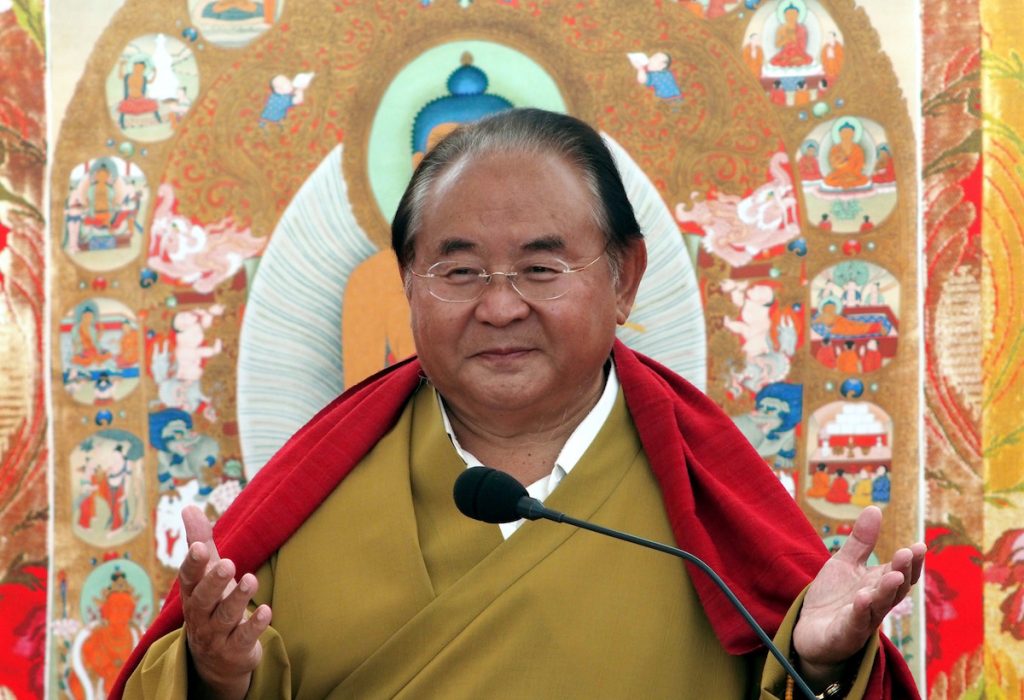The disheartening news about the scope and severity of the alleged physical and sexual abuse of Rigpa students by Sogyal Rinpoche has shaken the Buddhist world. Equally disheartening is the fact that most prominent Tibetan Western Buddhist teachers, academics, and researchers have largely remained silent.
Related: How Student-Teacher Relationships Go Awry in the West
The allegations made by the ex-senior students—not denied by Rigpa—are so serious, and carry such potentially devastating legal ramifications, that Tibetan Buddhist teachers alone are unlikely able to deal with them in their full scope. This is not to say that Tibetan Buddhist teachers cannot play a critical role; they can and must provide spiritual guidance and comfort to those who have been abused, as well as to the Rigpa community as a whole. And teachers must call for a collective discussion within the Tibetan Buddhist traditions to learn about what sexual and physical abuse is, how vulnerable students are impacted, and the serious ethical and legal implications of such behavior in modern societies.
Given the severity of abuses and the likelihood of lawsuits, it is likely that legal counsel has advised senior Rigpa administrators not to say anything that may be construed as an admission of wrongdoing and that could compromise their defense in court. It is, therefore, unlikely that any further admission about the abuse is forthcoming.
In the meantime, any prolonged delay in addressing the issue of abuse and those who have been abused will harm the credibility and integrity of Rigpa as one of the foremost Tibetan Buddhist organizations in the West. It is important that institutions as important as Rigpa survive, but to do so, they must reform.
To work toward this, the first thing Rigpa must do is follow through on its promise to initiate an investigation commission, and to let that commission begin its inquiry as soon as possible without any outside interference from Rigpa. The commission’s findings, along with a detailed explanation of how it arrived at its conclusions, should be made available to all members of the organization. Based on the findings, Rigpa should then assume responsibility and initiate the first step in a long, possibly turbulent, and painful process of healing. For such a process to work, however, there must be an open acknowledgment of the abuse and apologies to those people whom Rigpa failed to protect. Such an admission will create a space for staff, students, and ex-students to speak out freely and openly without fear of retaliation.
Related: New Allegations of Sexual Abuse Raise Old Questions
This initial process will necessarily be chaotic, confusing, and often divisive, as the group will split into opposing camps and begin to attack one another. The immediate impulse will be to stop the process. This upheaval, however, is a necessary phase that groups have to endure and work through in order for any real healing to begin. There are no winners here, and the road ahead for Rigpa to reclaim its integrity will not be easy. But Rigpa can start by doing the right thing.
In the meantime, we must question recent attempts by some Tibetan teachers and students to justify sexual and physical abuse by considering it a part of Vajrayana teachings and practices. Clearly, the elephant in the room in Vajrayana today is how self-serving teachers can exploit samaya—the set of vows between a teacher and student that solidifies their relationship—and the directive to students to regard their teacher as a Buddha. Any criticism of or challenge to their teacher’s authority and behavior is often construed as a violation of these vows, and the student is often threatened with excommunication.
Condoning abuse under these conditions reflects a lack of empathy and sensitivity for those who have been abused, and it is mostly likely an egregious misrepresentation of the basic teachings of the Buddha. How would one feel if it was one’s daughter, son, wife, husband, sister, or brother abused by their teacher?
Yet the power of such teachers to justify their abusive behavior by invoking “crazy wisdom” cannot be underestimated, particularly when they are charismatic, savvy, manipulative, and very skilled in making students, fellow teachers, and donors buy into their behavior. It is, therefore, of the utmost urgency for Tibetan Buddhist leaders of stature and integrity—both Tibetan and non-Tibetan—to come together to discuss these issues and explore what to do to prevent such abuses in the future.
If Rigpa reaches out to those who have been abused with empathy and understanding, and assumes responsibility for what happened and make amends, it can heal and redeem itself. If, on the other hand, Rigpa fails to own up and take real steps to redress the abuse, Rigpa may survive but will do so without a heart.
Thank you for subscribing to Tricycle! As a nonprofit, we depend on readers like you to keep Buddhist teachings and practices widely available.
